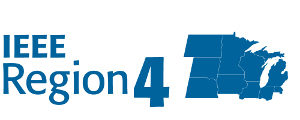
- This event has passed.
Metamaterials: Wave Filtration to Energy Harvesting
May 9 @ 6:30 pm - 9:00 pm EDT
Energy harvesting, the process of capturing and converting ambient energy into usable electrical power, has garnered significant attention in recent years as a sustainable solution for powering low-energy electronics and wireless sensor networks. Some of the challenges and opportunities in energy harvesting include integration with energy storage systems, optimization for specific applications, and the importance of system-level design considerations for maximizing overall efficiency. Emerging trends such as hybrid energy harvesting systems and self-powered IoT devices underscore the growing significance of energy harvesting in addressing sustainability challenges and enabling autonomous and ubiquitous sensing technologies.
When we want to predict the behavior of sound, one of the most important factors to consider is the medium through which it is traveling. Sound travels at different speeds depending on the medium. There are also differences in behavior when sound waves encounter a new medium: some materials reflect the sound, while others absorb it. The effect of different material properties on sound is what drives the research of acoustic metamaterials, which are designed to manipulate sound waves for some specific purpose.
Metamaterials are engineered structures composed of multiple traditional real-life materials, offering exceptional properties that are impossible to find in traditional materials. Acoustic metamaterials are traditionally used for wave filtering, acoustic clocking, and vibration control. In filtering the wave, acoustic metamaterials either use the principle of Bragg scattering or local resonance. While the local resonance phenomenon traps/localizes the strain energy inside the metamaterial, this talk highlights how this trapped energy can be extracted by converting it to electrical potential. Hence, the metamaterial can perform dual operations simultaneously, wave filtration and energy harvesting. The harvested electric energy can then be used to power low-power electronic devices, such as powering pacemakers from heartbeats, and powering cellphones from car/human vibration. We will also talk about models developed for simultaneous heat energy guiding/control and energy harvesting.
This presentation will count for 1 Professional Development Hour (PDH) for the PE License in Wisconsin and Michigan.
Speaker(s): Dr. Riaz Ahmed,
Agenda:
5:30 Social time, cash bar open
6:15 Order meals from restaurant menu
6:30 Dinner served
7:00 (or as meals are finished) Section announcements, door prize drawing,
Featured Speaker – Dr. Riaz Ahmed
8:00 (approximately) Wrap up – final comments
Reservations should be received by Wednesday, May 8 by registering from this web page.
The Dinner fee of $20, will be collected at registration.
IEEE Student Members may attend and enjoy dinner at no cost. Student members should register by emailing blluchs@ieee.org or oliveira@mtu.edu.
Bldg: Green Bay Distillery, 835 Mike McCarthy Way, Green Bay, Wisconsin, United States, 54304

